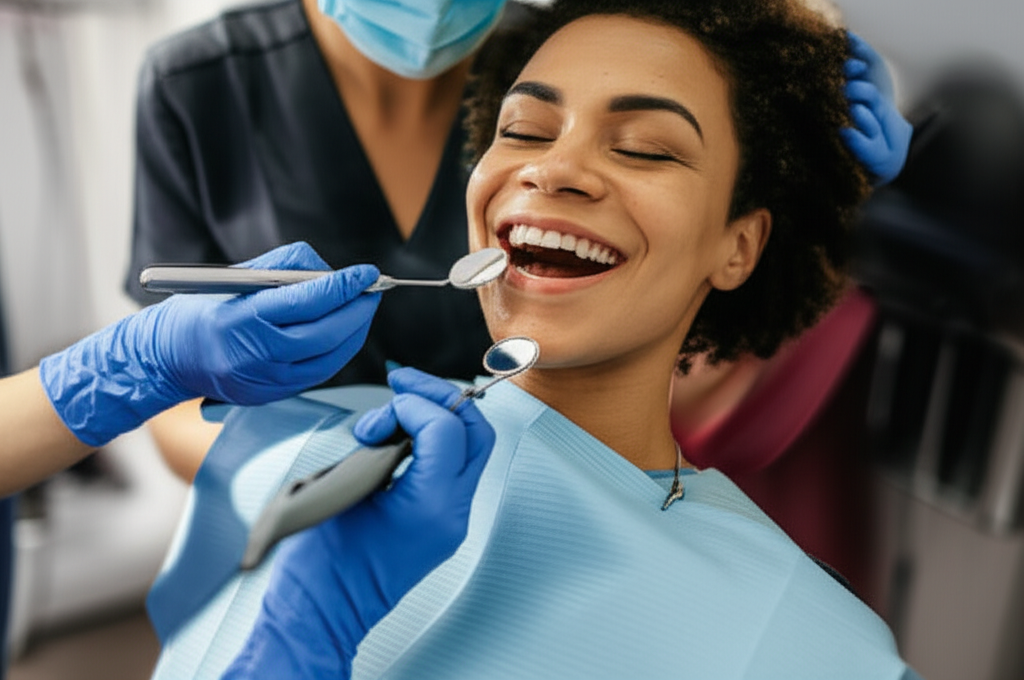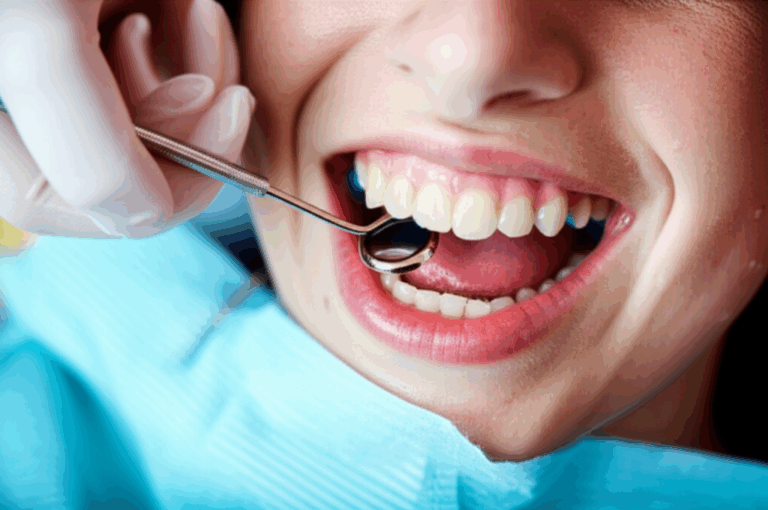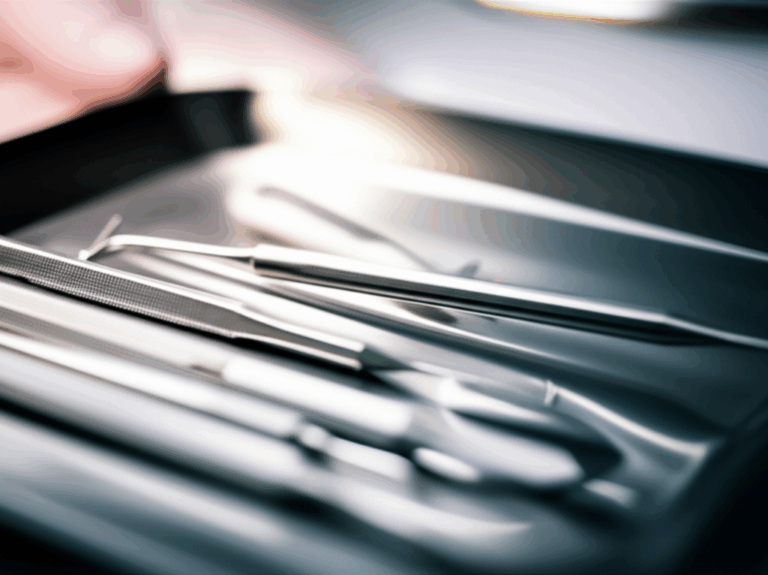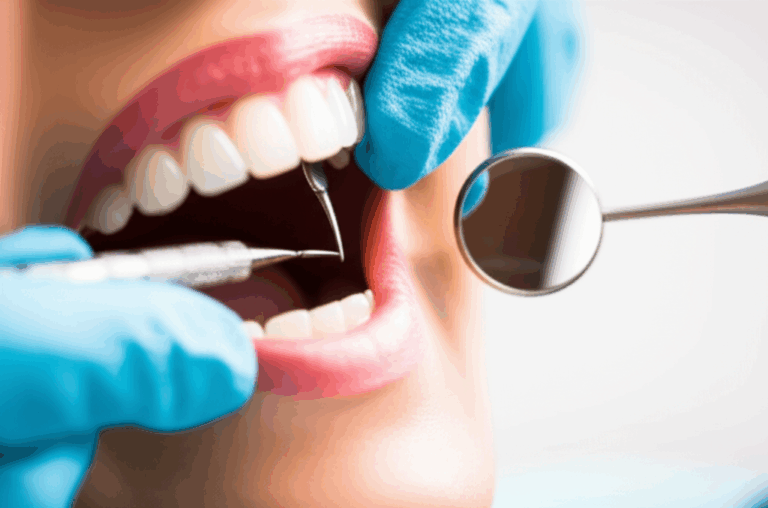
How Long Does It Take to Become a Dental Hygienist? Your Complete Timeline & Path
Have you ever asked yourself, “How long does it take to become a dental hygienist?” Maybe you’re thinking about a new job, or just about to start and want a good career where you can make a real difference. Well, you’re not the only one. This is one of the most common things people ask before starting dental hygiene—and that makes sense! Knowing how much time, effort, and money you’ll put in helps you make a smart choice about your future.
Let’s break it all down, from those first basic classes all the way to getting your official license. We’ll walk through how long it normally takes, where you might go faster, and what might slow you down. By the end of this guide, you’ll know what’s ahead—and feel ready to get started.
In This Article
- The Fast Answer: How Long, Really?
- Understanding Your Path: Degree Options and What They Cover
- The First Step: What Are Prerequisites and How Much Time Do They Add?
- Beyond Graduation: Exams and Getting Your License
- The Grand Total: Timeline Scenarios (Associate’s vs Bachelor’s)
- What Can Speed Up or Slow Down Your Journey?
- What Is Dental Hygiene School Like, Day to Day?
- Is This Career For You? The Good and Not-So-Good Parts
- Frequently Asked Questions About Becoming a Dental Hygienist
- The Key Takeaways: Map Out Your Success
The Fast Answer: How Long Does It Take to Become a Dental Hygienist?
If you’re looking for a quick answer, here it is: Most people become a dental hygienist in 2.5 to 6 years depending on the way they go and how much college they finished before they started. Here’s the breakdown:
- Associate’s Degree (most common): 2.5 – 5 years (with all basic classes, program, tests, and license)
- Bachelor’s Degree: 4.5 – 6 years (everything included)
So, why does it take different amounts of time? Let’s find out more.
Understanding Your Path: Degree Options and What They Cover
You have choices, and each one will change your time and experience. It’s like picking between a walking trail or a bike path—both get you there, but your trip and what you see will be different!
The Associate’s Degree in Dental Hygiene: The Usual Way
Most people choose the Associate’s Degree. You can get it at community colleges and some universities, and it usually takes around 2 to 3 years of regular classes, after you finish your basic classes.
What will you study? You’ll take:
- Main science classes: Anatomy, Physiology, Chemistry, Microbiology, Biology
- Dental classes: Oral health, gum care, dental tools and materials, X-rays
- Hands-on work: Taking care of real patients as you learn
After you finish, you can take the needed tests so you can get jobs in dental offices, clinics, or even health groups.
The Bachelor’s Degree: More School, More Choices
If you want to teach someday or work in management or health programs, a Bachelor of Science in Dental Hygiene (BSDH) usually takes 4 years (if you’re full-time and have your basic classes done).
The extras include:
- More science and research classes
- Leadership and community health classes
- More focus on communication and thinking skills
Some programs let you transfer your credits from an Associate’s Degree for a “degree completion” that takes less time. Always check with each school to see how they run their programs and credits.
The First Step: What Are Prerequisites and How Much Time Do They Add?
Think of prerequisites (basic classes) like packing your suitcase before a trip. You can’t start the trip until you have everything you need—some people start with stuff already packed! How long will it take?
Plan on 0.5 to 1.5 years, on average for these basic classes, but it depends on your past:
- Already finished some college classes (like science or math)? Good—maybe you only need a few more classes.
- Starting from new? It can take up to a year and a half, especially if you go part-time.
Usually, you’ll need to take:
- Anatomy & Physiology
- Microbiology
- Chemistry
- General Biology
- College-level Math
- English
- Psychology and/or Sociology
Tip: Check the exact needs for each school. They can be different. Community colleges or online classes can be easiest to get started with at this step.
Beyond Graduation: Exams and Getting Your License
You finished school—great job! But you’re not done just yet. You still have to become an official hygienist. Here are the last things you’ll need:
The National Board Dental Hygiene Examination (NBDHE)
- When? Usually the last year of school or right after.
- How long is the test? It’s long—4-6 hours.
- When will you know if you passed? Usually in a couple weeks.
The Regional or State Clinical Board Exam
- What is it? You’ll show your hands-on skills with real or fake patients. States use different tests (CRDTS, WREB, CITA, CDCA).
- How long? The test is a few hours. You get results in weeks.
Get Your State License
- How long does that take? Every state is different, but plan on 2 to 8 weeks for all the forms and things like background checks, fingerprinting, proof of CPR class, maybe a short law/ethics test.
Keep Learning: Continuing Education
- Even after you have your license, you’ll need more classes every year or two so you stay up to date and keep your license.
The Grand Total: Timeline Scenarios (Associate’s vs Bachelor’s)
Here’s how it all adds up, based on which degree you pick and how much school you’ve done already.
Associate’s Degree Path
- Basic Classes: 0.5 – 1.5 years
- Dental Hygiene Program: 2 – 3 years, full-time
- Tests & License: 0.2 – 0.5 years (sometimes at the same time as your last year)
Total: 2.5 to 5 years
Bachelor’s Degree Path
- Basic Classes: 0.5 – 1.5 years
- BSDH Program: 4 years, full-time
- Tests & License: 0.2 – 0.5 years (can happen in your last semester)
Total: 4.5 to 6 years
Real-life story:
Elena started with no science classes, took a year to finish basics, did a 3-year Associate’s program (with one summer off), and got her license six weeks after she graduated. Total: just over 4 years from “I want to be a hygienist!” to working her first real job.
What Can Speed Up or Slow Down Your Journey?
Everyone’s path is a little different. Here are things that might make it quicker or take longer:
What Might Slow You Down:
- Part-time or Full-time: If you need to keep a job, going part-time means it will take longer, sometimes twice as long.
- Waiting Lists: Some schools have more people applying than spots, so you may have to wait a semester or two.
- Only Certain Start Times: Some schools let you start only once or twice a year.
- Retaking Classes: If you don’t pass a needed class (like chemistry), you’ll need to take it again first.
What May Make it Faster:
- Old Credits: If you already have college science or math, you’ll save time.
- Faster Programs: Some schools let you “fast track”—be ready for a heavy class load though.
- Bridge Programs: If you’re already a dental assistant, some programs let you use your old classes or work experience.
Transferring Credits: What Happens?
If you have an old degree or classes, always ask your new school what will count. Sometimes older or non-science credits might not work.
What Is Dental Hygiene School Like, Day to Day?
You might wonder: What do students actually do? Is it just talking about brushing teeth, or is there more? (Hint: there’s a lot more!)
Here’s what’s normal:
Classwork
At first, you’ll be in classes learning dental science—things like how the body works, germs, and the parts of teeth and gums.
Practice Labs
Before you see real patients, you’ll use fake mouths and tools to learn how to clean, polish, and take X-rays.
Real-life Clinics
The best part is treating real patients. You’ll work with real people (but with your teacher watching), cleaning teeth, applying sealants, and taking X-rays. It’s like your “apprentice” time.
Learning to Think & Behave Right
You’ll deal with tough problems, think on your feet, learn about the rules of patient care, infection control, and talking to patients from all backgrounds.
Tip: Dental hygiene school is tough but rewarding. Students often say the best part is caring for real patients, even as a student.
Is This Career For You? The Good and Not-So-Good Parts
Before you decide, it helps to know the good stuff and what’s hard. Let’s be honest:
Why Dental Hygiene Is a Good Choice
- Steady Job Growth: The Bureau of Labor Statistics says jobs for hygienists will grow about 6% from 2022-2032, which is about as fast as most jobs.
- Good Pay: The average pay was about $87,530 a year in 2022, but what you make depends on where you live and work.
- Flexible Hours: Lots of hygienists work part-time, get days off, and have a good work-life balance.
- You Help People: You’ll help people feel better, stay healthy, and smile. That’s something to be proud of.
The Harder Parts
- Physically Hard: The job can be tough on your hands, neck, and back. Being on your feet and using small tools can cause soreness or injury.
- School Is Tough: The classes are competitive, and there’s lots of science and studying.
- Keep Learning: You’ll need to keep taking classes to keep your license.
- Emotional Days: Some patients are nervous or tough to work with. You’ll need patience and kindness.
For more on this job, check out the American Dental Hygienists’ Association (ADHA) and official program websites. They have student stories and examples from real jobs.
Frequently Asked Questions About Becoming a Dental Hygienist
How long is dental hygiene school without the basics?
Most approved Associate’s programs are 2–3 years. If you have finished your basics (prerequisites), you can focus just on hygiene school.
Can I become a dental hygienist in 2 years?
It’s rare, but with all basics done and a quick program, maybe. Most people need at least 2.5–3 years.
Do I need a bachelor’s degree?
No—an approved Associate’s is the usual minimum for most jobs. A bachelor’s is good if you want to teach, manage, or do research.
What are the hardest parts of dental hygiene school?
A lot of people find science classes hard, especially anatomy or disease classes. Working with real patients is scary at first, but most people end up loving that part.
What’s the fastest way to become a dental hygienist?
Finish your basics early, choose a program with short waitlists, and go full-time. Some schools offer faster tracks if you’re ready for tough class loads.
Related Resources
Want to know more about dental careers? See how new [digital dental lab] technology helps clinics give better care. Curious how tooth repairs work? Learn how a [crown and bridge lab] can help you understand both hygiene and dental fixes. Looking for smart advice? Check out our [dental practical guide] for useful info on dental careers and patient care.
The Key Takeaways: Map Out Your Success
Ready to start? Here’s what matters:
- Becoming a dental hygienist usually takes 2.5 to 6 years from start to finish, depending on your schooling and speed.
- You’ll need to finish core science basics, graduate from an approved school, pass two big tests, and get your license.
- An Associate’s Degree is the fastest way to start working, while a Bachelor’s opens doors to other jobs like teaching or managing.
- Your path depends on your past classes, program choice, and schedule. Start by looking at what your favorite school wants for basics.
- This job needs caring, energy, and good people skills. Every healthy smile you make is a win!
Take Your First Steps
- Look at dental hygiene schools near you that are approved.
- Make a list of what basic classes you need and start signing up (local colleges or online are good ways to start).
- Ask current dental hygiene students or workers for tips—they often love to help newcomers.
- Talk to school advisors if you have questions about what you need or which classes will transfer.
Remember, this path can be hard, but the rewards are real. With every step, you’ll get closer to a job where you use knowledge and kindness to help people smile every day.
—
Reviewed by a dental health teacher.
References
- American Dental Hygienists’ Association (ADHA)
- Bureau of Labor Statistics (BLS): Dental Hygienists [2022 pay, job info]
- Commission on Dental Accreditation (CODA)
- National Board Dental Hygiene Examination (NBDHE) Info
- Lots of state dental board sites
If you want more tips on dental jobs and patient care, visit our [dental practical guide] and see real-world info made for people like you!
This guide is for info only and isn’t a replacement for advice from a school advisor or dental professional.








